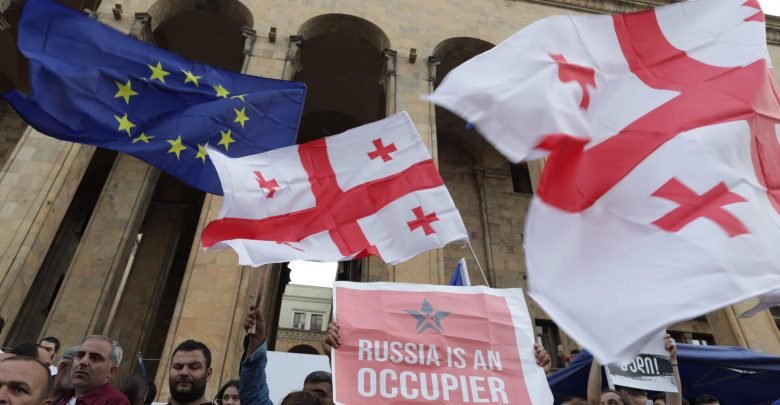
Civil Society Urge New Peacebuilding Process while Commemorating Fall of Sokhumi
A group of civil society organizations and activists marked the 29th anniversary of the Fall of Sokhumi, which ended the 1992-1993 Abkhazia conflict, in a joint statement on 27 September which called for the political spectrum to work towards a new peacebuilding process.
The CSOs highlighted that the ongoing war in Ukraine, as well as the resurgence of conflict between Azerbaijan and Armenia, have shown that the “practice of resolving imperial ambitions or territorial conflicts by force is still the norm in the region.”
While they commended Georgia’s commitment to peace, they underscored that Georgian efforts for conflict transformation and human rights protection remain “insufficient and weak.”
The statement emphasized that it is unacceptable to use issues of war and peace for “narrow political interests,” and highlighted that the Georgian government “is trying to use the issue of war to spread speculation and slander its opponents as though they want to drag Georgia into the war.”
- Georgian PM Upholds “War Blackmail” Narrative, Backs Dissident MPs, Slams Opposition
- Ivanishvili Addresses “War Blackmail” Controversy
The statement also lambasted certain opposition parties for using “past tragedies to increase their political capital.” “Together they are using the traumas and fears of the Georgian population as a political weapon, which has nothing to do with peace or justice,” they added.
They declared that “unsubstantiated talk” of a second front is the “political manipulation of these traumas, which, among many other things, results in even more alienation, fear, and even hatred between Georgians, Abkhazians, and Ossetians.”
The group accentuated that considering the current security environment and the risks it has created, the country’s politicians, political parties, and government representatives “must understand their responsibility and act in concert to avoid these risks.”
In that context, they called for a new peacebuilding and conflict transformation process based on:
- Respect for human rights, policies based on people’s needs, and the principle of equality;
- Multi-level, direct, and honest dialogue between Abkhaz, Ossetian, and Georgian political, professional, and public circles;
- Understanding the traumas of all parties involved in conflicts, admitting mistakes, and investigating crimes;
- Tangible, practical, and result-oriented policies to respond to the needs of conflict-affected populations and restore trust between conflict-torn societies.
The group reiterated its call to both the ruling Georgian Dream party and opposition parties to place Georgia’s long-term strategic interests above personal interests and to conduct “meaningful, issue-oriented, and honest dialogue with each other, the main goal of which will be to obtain European Union candidate status for the country in the shortest possible time.”
Within that process, they stressed the need to involve civil society and various political groups in developing a real action plan for responding to existing security challenges, transforming conflicts, and protecting the rights of those affected by conflict.
The joint statement was signed by a combination of 37 civil society organizations and individuals working on conflict-related issues. Among them were the Social Justice Center (SJC), Women Fund Georgia, and the Human Rights Center.
This post is also available in: ქართული Русский